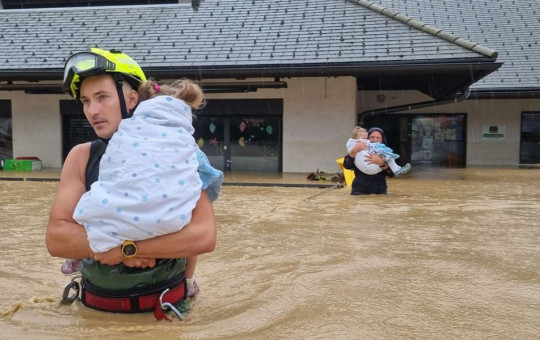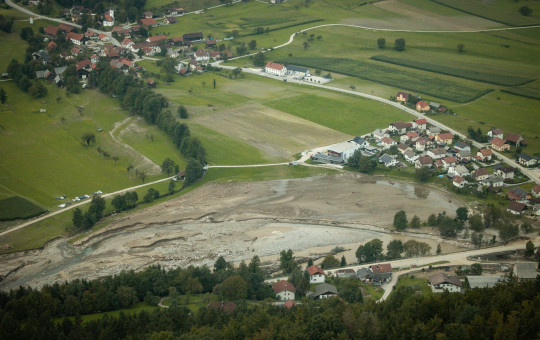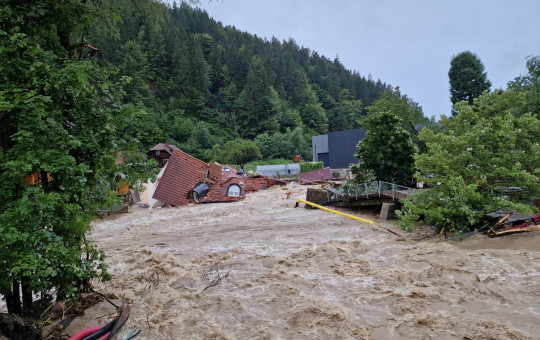Date: 6. August 2023
Time to read: 2 min
Contact your local community for information on the situation on the ground.
The emergency number 112 is intended only for the most urgent cases when life and property are at risk.
Follow instructions from public safety services.
Water is polluted.
Floodwaters are contaminated. They can contain sewage water, waste, animal corpses, dangerous substances that react differently in water or when in contact with other dangerous substances, large objects, mud, so when eliminating the consequences of floods, wear appropriate clothing or protection and wash thoroughly after work.
In case of skin injuries, check the time of your last tetanus vaccination and, if necessary, renew the protection.
Boil water or drink bottled water.
If the water supply network is damaged, do not use or drink water from your water supply until it is reported that it is safe, and especially do not drink water from wells.
Do not eat food that has come in contact with floodwaters.
Throw away food that has come in contact with floodwaters. Do not eat food from flooded gardens or fields.
Check condition of your home or property and damage.
-
Any corroded foundations, cracks and similar damage are dangerous.
-
If your home or property is damaged, take photos or videos to document your damage, and contact your insurance company
-
Never touch electrical equipment while you are wet or standing in water. Consider hiring a qualified electrician to assess damage to electrical systems.
-
If there is a power outage, use a flashlight or glow sticks for lighting. Do not use matches, candles or open flames, as leakage of gas and evaporation of spilled flammable liquids may cause an explosion or fire.
-
Inform public safety services about the breakage of telephone, electrical, water or gas wiring or damage caused to them.
-
Pump out water from flooded areas and remove debris, flooded devices and equipment.
Follow the manufacturer's instructions when using submersible pumps and other electrical devices.
-
Ensure safety against electric shock and fire safety.
-
Report flammable liquids spill.
-
Clean and disinfect floors and walls of your home or property.
-
Take precautions. Wear appropriate protective equipment (gloves, safety glasses, and face masks).






